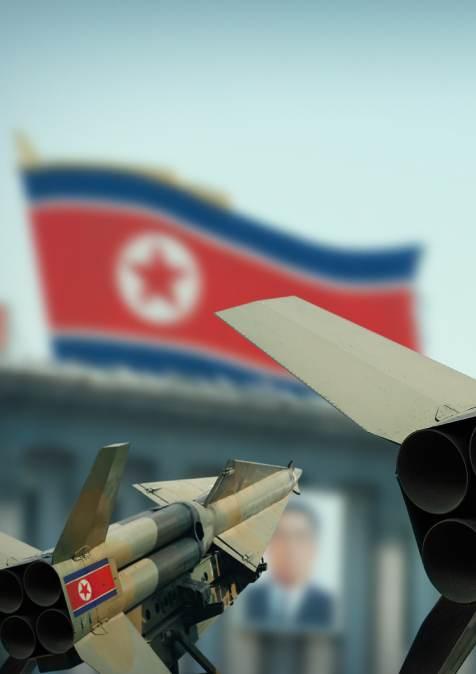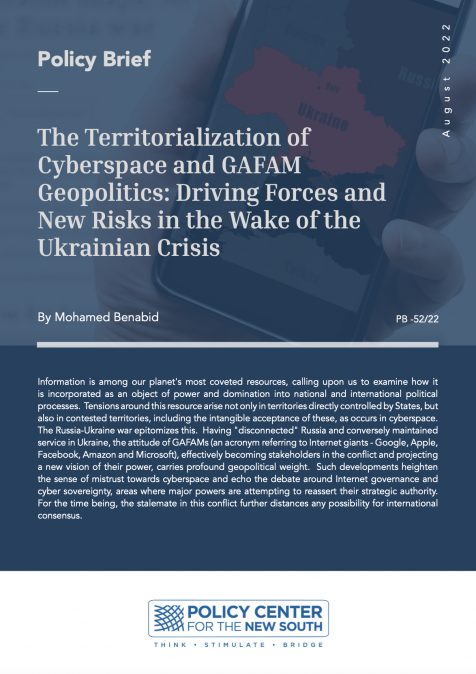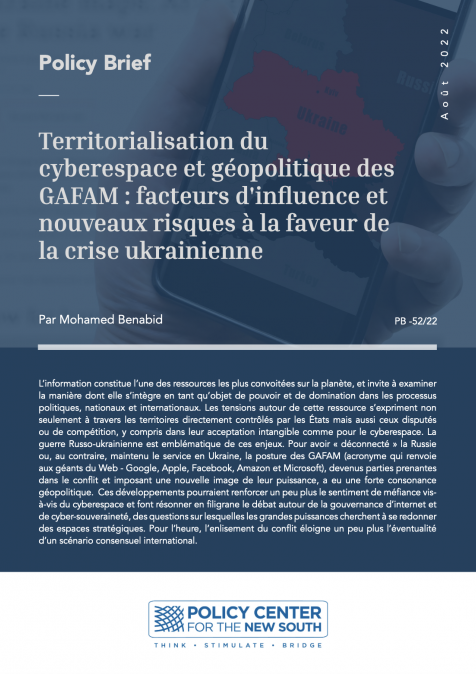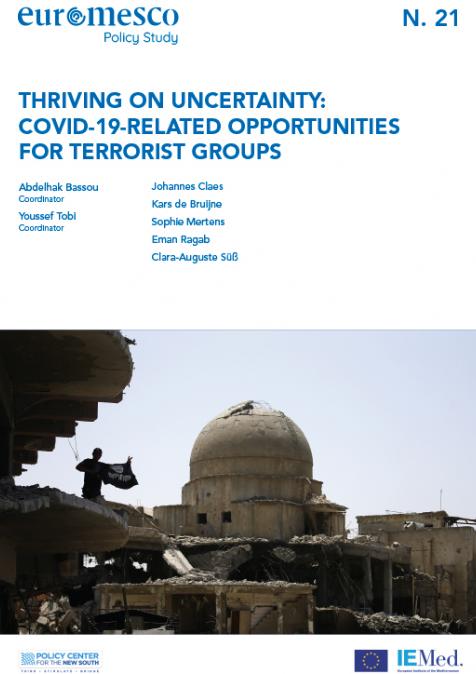Publications /
Opinion
If you haven't read Part 1 of Cyberwarfare, click here.
“THIS WEAPON WILL NOT BE PUT BACK IN THE BOX”
In March 2018, the US Department of Homeland Security warned critical infrastructure operators of Russian cyberspace attacks targeting industrial control systems. Particularly endangered would be nuclear facilities, energy and water. Just recently, the Marriott /Starwood hotel chain revealed that hackers plundered 327 million guest files, including passport numbers and credit card details. The accused intruder: China. Beijing has been the suspect in another heist in 2014. The hacking of the United States Office of Personnel Management— capturing millions of detailed forms, which Americans fill out to obtain a security clearance (Sanger).
The same year, Admiral Michael Rogers, the director of the National Security Agency (NSA), informed congress that malware attributed to Russia had indeed been found on critical infrastructure throughout the country, possibly a so-called “advanced persistent threat.”
[They are] “sophisticated intruders who do not simply infiltrate a system for one attack, but stay there, silently,” as Andy Greenberg wrote in the Wired, “keeping their hold on the target,” possibly on dozens or hundreds of American infrastructure targets, ready to release its malware. US experts won’t exclude that the malware Crash Override contains code designed to target a particular Siemens device found in power stations--a piece of equipment that functions as a kill switch to prevent dangerous surges on electric lines and transformers. If Crash Override is able to cripple that protective measure, it might already be able to cause permanent damage to grid hardware.
In 2014, Barack Obama requested, in his budget, 19 billion dollars for Cyberspace Security, an increase of 35 percent from the previous year. A defensive posture is urgently needed -- there have been 181.5 million ransomware attacks in the first six months of 2018, a 22 percent increase over the same period in 2017. Ransomware is a type of malicious software from crypto virology that threatens to publish the victims’ data or perpetually block access to its users unless a ransom is paid. Or cyber criminals use a more sophisticated technique called “crypto-viral extortion”—the files are encrypted, making them inaccessible. The criminals demand payment to decrypt. Ransom attacks are usually carried out using a “Trojan” which is disguised as a legitimate file that the user is tricked into downloading or opening when it arrives as an e-mail attachment.
There is no doubt that the US spy agencies, at times supported or even driven by Israel, are using similar methods engaging in cyber war, as Russians, Chinese, Iranians and the North Koreans. In 2009, the NSA’s Stuxnet malware silently accelerated a few hundred Iranian nuclear centrifuges until they destroyed themselves; a preview perhaps of a new era of warfare: “This has a whiff of August 1945,”said Michael Hayden, former director of the NSA and CIA, in a speech, “somebody just used a new weapon, and this weapon will not be put back in the box.”
The battle of cyberspace was opened, the internet assaulted and abused, each day the ideals shadowed by criminal conspiracies, sponsored by governments, as Russian agents attacked targets in Ukraine and lost control (or deliberately attacked global targets), catching western firms in their crossfire. The global computer system of the Danish shipping conglomerate Maersk was hit worldwide, causing between 200 to 300 million dollars damage. But “Not Petya,” the malware spread from the servers of an unassuming Ukrainian software firm, infecting some of the largest businesses in the world, the pharmaceutical company Merck [suffered from] $870 million in losses, Fed Ex (through European subsidiary TNT Express) lost $400 million -- a similar figure hit the French construction giant Saint Gobain. The snack company Mondelez (parent company of Cadbury and Nabisco) lost $ 188 million, while British manufacturer, Reckitt Benckiser (owner of Lysol and Durex), on the other hand, lost $129 million dollars. “Only when you start to multiply the Maersk drama,” wrote author Andy Greenberg, “playing out a across dozens of other NotPetya victims and countless other industries, does the true scale of Russia’s cyberwar crime begin to come into focus.”
Ten billion dollar losses. The price for Russia’s worm. The story, as told by Andy Greenberg in his book Sandworm. A nation state’s weapon of war released in a medium where national borders have no meaning and where collateral damage travels via a cruel and unexpected logic: where an attack aimed at Ukraine strikes Maersk, an attack on Maersk strike everybody at once. No criminal justice, no prisoner of war -- No military funeral either. Did Russia know which damage the worm would inflict internationally, or was it a warning to the world of banks and business to stay out of the Ukraine, the enemies’ territories? A message to Washington, to not dare a disruptive cyber-attack on Syria? “The physics of cyberspace are wholly different from every other war domain,” confirms Joshua Corman, a cybersecurity fellow at the Atlantic Council. “In those physics,” argues Greenberg, “distance is no defense. Every barbarian is already at every gate. And the network of entanglements in that ether, which have elevated and unified the world for the past 25 years, can, over a few hours on a summer day, bring it to a crashing halt.”
“THE PEARL HARBOR OF THE SOCIAL MEDIA AGE”
The dream of a conflict-free cyberspace -- absolutely free, a playground for all, unchained opportunities, peaceful revolutions, no laws, no restrictions, freedom of speech, freedom of expression, of madness, extremism, destruction-- is coming to an end before the abstruse and abstract world of Science fiction had time to blend with reality. Dreams, which develop like aphyllous plants that have no leaves. Global freedom has not been advanced through the Internet. Poland, Hungary, China, Russia, Venezuela -- to name a few nations -- are moving towards repression, to control of the media, censorship of the internet. Cyberspace is turning into a paradise for hackers, which daily intrude into the privacy of users, stealing, paralyzing accounts and blackmailing the victims for payments. Russian, or Chinese government hackers, have penetrated the Pentagon, placed dormant systems on infrastructure systems, ordered into action at will, a digital tsunami of destruction.
The ice is melting in the Antarctic and at the North Pole, the trees of the Amazon forests are eroded, islands are drowning in the South Sea, plastic garbage is murdering fish and fish is poisoning human consumers with plastic. Optimism and hope are evaporating -- robots are replacing workers, driving them into unemployment, and Protestants and Catholics are deserting their God. Monasteries and convents are closing, because the young do not believe anymore. Too much deprivation and sacrifices, too many pedophile priests. This digital generation discovered Facebook, Twitter and WhatsApp, replacing communication at home with verbal snippets, meeting the future wife online --a truly romantic and charming surrounding. Books are out, and newspapers are fading into history. The news on the internet is often fake, distorted or just not worth the algorithms used. A president is managing world power and insanity on Twitter. Millions of his fans applaud, turning into activists on the Internet, spreading lies for their Commander-in-Chief. Germans sacrificed their lives for a mad Fuehrer. I hoped America was different. Parents are numbed by the flow of fake news; their children dump their fantasies onto the internet, a global garbage heap of simplicity, brains invaded by symptoms of neurosis or paranoia. No laughter in cyber space.
No one is demanding theses lost souls, glued online like suffocated flies, to show any interest in Plato’s metaphysical views, and it would certainly be too much to ask what he or she would answer to Socrates question, whether it is preferable to live in a bad democracy or a country reigned by a tyrant. Yet, they need to know more of culture, history, and the values of precious human life realize the dangers for our planet because of climate change, caused by irresponsible politicians, greedy industrialists and dozing citizens. The troubled leaders of tomorrow must urgently be liberated from the chains of internet banalities. Cyberspace does facilitate the radicalization of thought, provoke racism, promote right wing theories and plead the ghosts to return, which glorified brutality and repression. Internet users inhale the lies, the distortions, which hardly ever are corrected. Social media, like Facebook, globally counting two billion users, offers space, provokes violence, because violence, aggressive rhetoric sells. Hail to newspapers, the classic media.
THE DAWN OF A SECOND INDUSTRIAL REVOLUTION
Yes, Mark Zuckerberg, the idiosyncratic owner of Facebook, facilitated the spread of Russian propaganda before the Presidential election in the USA, the delivery of millions of data to supporters and strategists of Trump, just because Moscow paid and 150 million American users of the social media were manipulated by Google and Twitter, Instagram and smaller social media networks like Vine and Live Journal. YouTube, part of the Google empire, hosted 1,100 videos, produced by the Kremlin-backed Internet Research Agency, whose owner ,Yevgeny V.Prigoshin is a Putin friend, based in St. Petersburg, a willing tool to spread fake news, provoke division, slandering democracy through digital invasions. “If the first fifteen years of the twenty first century were dominated by terror,” writes the New Yorker, “we are now entering a period when the war on cyber-and war by cyber-will very likely loom as large in our discussion of national security.” The manipulated election of Donald Trump, is for the New York Times nothing less than “the Pearl Harbor of the social media age,” a singular act of aggression. Or, in another think piece, “just the beginning of a world war of disinformation.”
Donald Trump is President, as reliable as a loose cannon. Yet, active and ongoing interference operations in his favor remain on several platforms,” signals Renee DiResta, one of the researchers involved in analyzing the Russian entanglement before and during the Presidential elections for the US Senate. Russian trolls are still active, denouncing the Russian-Trump investigation by Robert Mueller as “wild conspiracy,” accusing the former FBI leader, falsely, of having worked with “radical Islamic groups.” His former colleague, James Comey, fired by Trump as FBI boss, is insulted by face book user “Back to the badge” as “bad cop.” Other users seek to influence and improve the image of Syria’s dictator Bashar al-Assad, who will be relieved to see American GIs depart from Syrian soil. Thanks to Trump, the Putin loyalist. In a way, the slide, better the steep fall, on Wall Street, punished the strange Mr. Zuckerberg for his lack of vision and control. He is on track to end 2018 with a loss of 19.8 billion dollars. Don’t cry for him, he still has a net worth of 52.8 billion and still ranks seventh on Bloomberg’ s Billionaire Index. But, even for a billionaire, the tumultuous days on the stock exchange must be a sobering experience. On January 1, 2018, Mr. Zuckerberg was worth 72.8 billion -- almost as wealthy as the Vatican.
The French President Emmanuel Macron tried, in November, to have Donald Trump and other world leaders sign a vaguely worded international call to “prohibit indiscriminate or systematic harm to individuals and critical infrastructure, such as shutting down an electric grid,” and “prevent malign interference by foreign actors aimed at undermining electoral processes through malicious cyber activities.” The “Paris call for Trust and Security in Cyberspace” was signed by 51 nations. Iran, China, North Korea, were not invited and did not sign. Neither did Israel nor Washington. Despite the growing doubt about the credibility of the anarchic, often irresponsible internet, Kevin Drum, staff writer of Mother Jones, is certain: “The digital revolution is going to be the biggest geopolitical revolution in human history.” The Industrial Revolution changed the world, the author argues, and “all it did was replace muscle. Human brains were still needed to build, operate and maintain the machine, and that produced plenty of well-paying jobs for everyone.” But the digital revolution, predicts Drum, “will replace the human brain. By definition, anything a human can do, human level Artificial Intelligence will also be able to do -- but better. Smart robots will have both, the muscle to do the work and the brainpower to run themselves. Putting aside airy philosophical arguments about whether a machine can truly think, they will, for all practical purposes, make Homo Sapiens obsolete.”










